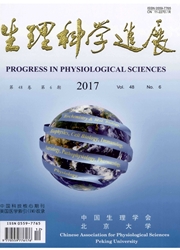

 中文摘要:
中文摘要:
脓毒症多呈现典型的促炎效应和抗炎反应,并与获得性免疫功能障碍同时出现,且免疫细胞中超过80%的基因表达发生改变。由于单核/巨噬细胞细胞因子谱的改变、主要组织相容性复合体Ⅱ类抗原(MHCⅡ)及共刺激分子表达下降以及树突状细胞的凋亡,诱发细胞免疫功能下降;中性粒细胞活性降低和补体系统的激活,又增加感染易感性。T淋巴细胞表现无反应性甚至凋亡,并向Th2漂移,同时免疫抑制性细胞功能增强,进一步发展则造成免疫麻痹,出现顽固性感染、器官衰竭甚至死亡。因此,阐明脓毒症免疫功能障碍的发病机制,进而明确机体的免疫状态,具有重要临床意义。
 英文摘要:
英文摘要:
Sepsis is a mixed inflammatory response, characterized by the occurrence of classical intlammarory anu anti- inflammatory, as well as adaptive immune response, with a global reprioritization affecting 〉80 % of the cellular functions and pathways. Due to the alterations of cytokine profile, and decreased expressions of MHC II and co-stimulating molecules on monocytes/macrophages, along with the apoptosis of dendritic cells, the cell-mediated immunity is significantly reduced. Moreover, the decreased neutrophil activity and complement activation result in the host more prone to infection. Attributed to the anergic and apoptotic T lymphoeytes, and the switch to Th2-1ike response of CD4+ T cells, as well as the enhanced function of immune-suppressing cells, the immune function is severely impaired. Concomitant with the worsening of the above situations, the immune system is finally paralyzed, resulting recurrent infection, multiple organ failure, and even fatal outcome. Therefore, the elucidation of the mechanism for immune deficiency of sepsis, and identify the immunological status, is of critical importance.
 同期刊论文项目
同期刊论文项目
 同项目期刊论文
同项目期刊论文
 Endoplasmic reticulum stress and its regulator XBP-1 contributes to dendritic cell maturation and ac
Endoplasmic reticulum stress and its regulator XBP-1 contributes to dendritic cell maturation and ac High mobility group box 1 protein suppresses T cell-mediated immunity via CD11c(low)CD45RB(high) den
High mobility group box 1 protein suppresses T cell-mediated immunity via CD11c(low)CD45RB(high) den Expression of tumor necrosis factor-alpha induced protein 8 like-2 contributes to the immunosuppress
Expression of tumor necrosis factor-alpha induced protein 8 like-2 contributes to the immunosuppress 期刊信息
期刊信息
